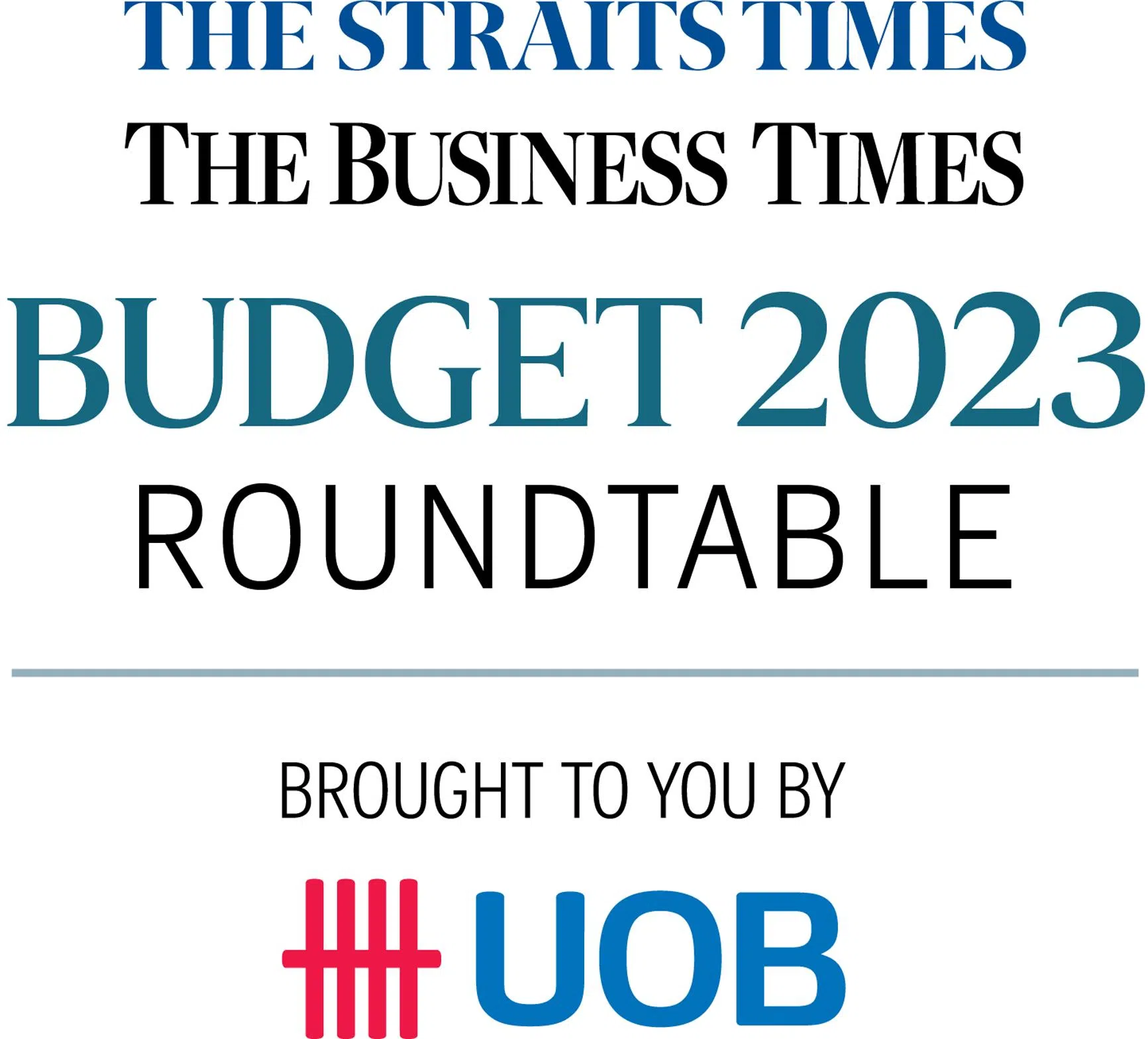Re-employment support on the cards to help retrenched workers tide over tough times: Lawrence Wong
Sign up now: Get ST's newsletters delivered to your inbox
SINGAPORE - To ensure retrenched workers do not rush into the first job they find, regardless of its suitability and prospects, a re-employment support scheme is needed, said panellists at a wide-ranging roundtable discussion on Monday.
“They may want to do that because they have bills to pay, and they really need to get the finances in order, but frankly, from a system point of view, it may not be the most optimal outcome,” said Deputy Prime Minister Lawrence Wong.
Finding the best-fitting job, or training for a job with better prospects, takes time, during which there might be room for the Government to step in to provide some interim support, said Mr Wong, offering the latest signal that such a scheme is in the works.
Mr Wong, who is also Finance Minister, was one of three panellists in The Straits Times-The Business Times Budget 2023 Roundtable held on Monday.
The roundtable, which was moderated by ST associate editor Vikram Khanna, also covered housing anxieties and increasing taxes for the middle class, among other topics.
During the Budget debate in February, Mr Wong said the Government was exploring targeted re-employment support to cushion retrenched or displaced workers, especially mature workers in their 40s and 50s, but did not specify the form that the support would take.
Distinguishing the mooted scheme from unemployment support, he said then: “We have to ensure that whatever we do does not erode the incentive to work... because we’ve seen the results of unemployment benefits offered in other places, where displaced workers receive generous benefits, but they then find it more attractive to stay unemployed than to get back into the workforce.”
His latest comments were in response to a question from Mr Khanna on what problem was affecting skills training in Singapore, leaving many job vacancies unfilled.
Demurring, Mr Wong said the unfilled vacancies were not a symptom of training not being effective enough, but instead reflected the amount of opportunities available in Singapore, with the Republic already approaching full employment, on a par with pre-pandemic levels.
“It’s not a bad problem to have that there are more opportunities, but we must expect, therefore, that we can’t protect every job,” he added.
Mr Liew said a support scheme would provide peace of mind for displaced workers, especially with retrenchments set to occur more often as industries transition in and out of viability.
The National Trades Union Congress’ vision of unemployment support is to provide short-term support to tide workers over, while they actively apply for jobs to qualify for benefits, said Ms Thanaletchimi.
Not “anyone who loses a job” gets unemployment support, she said.
The labour movement has been calling for an unemployment support scheme since October 2021, when it was one of nine recommendations issued by an NTUC-Singapore National Employers Federation task force after a year-long consultation exercise on ways to assist professionals, managers and executives.
Ms Thanaletchimi added that unemployment support would augment ongoing job security and training initiatives by ensuring that participating retrenched workers would have their daily needs met.
Echoing her sentiments, Mr Wong said that any implemented re-employment support scheme would be part of a broader suite of measures to help Singapore workers move to suitable higher-value jobs with better prospects and pay.
Other workforce measures to that same end include the Jobs-Skills Integrator scheme announced in Budget 2023.
Under the scheme, entities are appointed to ensure improved job prospects and pay for workers who undergo training, by coordinating the training and innovation efforts of employers, training providers and workers within a given sector.
The first Jobs-Skills Integrator unveiled was Nanyang Polytechnic in the precision engineering sector, during the debate on the Ministry of Education’s budget on Feb 28.
Integrators are also set to be appointed in the retail and wholesale trade sectors.
The scheme is the next step in the ongoing process to better help workers move to higher-value jobs with better pay and prospects, which has already shown results, Mr Wong said.
“It’s really about trying to coordinate and integrate all the efforts within the ecosystem, because... in order for this to work, you really must start with the employer.
“The employer must know how their business is changing, what’s their future business model, what are higher-value activities that they are pursuing, and what are the skill sets that they need.”
Then, he said, training providers need to work very closely with employers to design courses that impart the skills employers need, ensuring that those who complete the courses are in demand.
Moreover, the right workers with sufficient aptitude and desire have to be identified for a given course and industry.
Although the notion of a coordinating body is not new, it is the first time the Government is formalising the role, Mr Wong added.
“We have done it in a more ad hoc way, but we thought that there’s some value in formalising it, giving it a little bit more resources, with clear outcomes to deliver.”

pixbudget2023 - ST-BT budget roundtable logo. source: UOB


